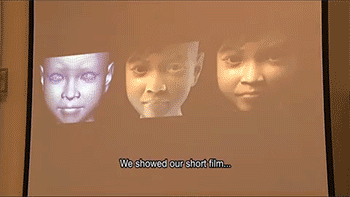 “Sweetie,” by Terre des Hommes, Netherlands (click here for more information)
“Sweetie,” by Terre des Hommes, Netherlands (click here for more information)
“You promised me that oblivion
would strangle me with ringed hands.
You promised me I would remember nothing.” ~ Catherynne M. Valente, from “Helen in the Underworld”
Wednesday afternoon. Sunny and warm, 70 degrees.
Random thoughts on where poems come from:
The intriguing sequence of images above appeared on my tumblr dash recently. I knew I wanted to use them but was unsure as to how I could incorporate them into a post. Then I remembered that several days ago I came across the poem below by Erika Meitner about memory and her grandmother. I never knew my mother’s mother, and I only met my father’s mother once, so the idea of a grandmother has always been abstract to me.
Then this afternoon, I was reading while Olivia napped, and I suddenly thought about eyes, and then the following poem came to me all in a rush:
Grandmotherly Advice
We are peeling potatoes for Sunday dinner
and she says to me in that half whisper
she reserves for curse words
and perceived blasphemous phrases—
“It is in the eyes.
You can always tell by their eyes.”
And I wonder what this non sequitur it is
that my grandmother has suddenly given essence.
Evil? deception? duplicity? worse?
I think I may have seen this it,
once or twice in the eyes of strange men,
somewhere in how they first looked at me
and then through me, never finding me
substantive enough
for more than a second’s glance.
I do not tell her how much
I have wished a man (any man) might have stayed
long enough for me to see something in their eyes.
Anything at all.
She has already moved on
to the near-silent clucking
she issues to the cats
as she pours food
into their bowls,
and I know I will never again hear
of it or them.
L. Liwag
November 12, 2014
Yizker Bukh
Memory is
flotsam (yes) just
below the surface
an eternal city
a heap of rubble
debris smaller
than your fist
an animal with-
out a leash
organized wreck-
age ghost net
or one hanging
silence on the phone—
she’s gone, my sister said,
and we wept and wept
over my grandmother
while my sister sat
with her body and me
in the static and the rabbi
they sent told her to recite psalms
as comfort so we listened to each other
breathe instead and her breath was
a tunnel a handful of pebbles a knotted
Chinese jump-rope her breath was the coiled
terrycloth turban our grandmother wore when she cooked
or walked the shallow end of her condo pool for exercise—
our grandmother still somewhere in her white turban sewing
Cornish game hens together with needle and string or
somewhere in her good wig playing poker or
somewhere in her easy chair watching CNN
while cookies shaped like our initials bake
in her oven O memory how much you
erased how many holes we punched
in your facts since who knows the stories
she never told about the camps there are
no marked graves just too much food on
holidays diabetes my mother’s fear
of ships and the motion of some
suspension bridges O memory
you’ve left us trauma below
the surface and some above
like the fact that I can’t
shake the December
my sister’s red hair
caught fire from
leaning too close
to the menorah’s
candles, our
grandmother
putting her
out with a
dish towel
with her
strong
arms.
~ Erika Meitner
Music by Michelle Branch, “Creep”

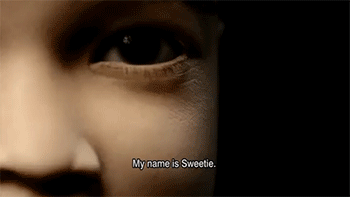
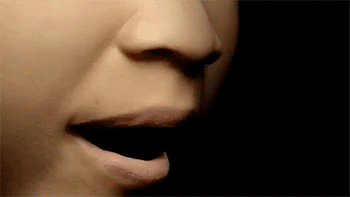
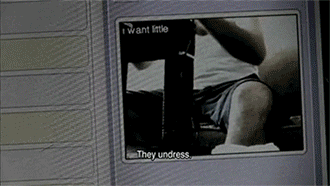
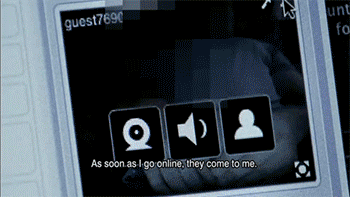





“and I know I will never again hear
of it or them.”
Your Grandmother is never going to visit the subject again… to talk about what she sees in people’s eyes. You’re thinking “dating advice” or maybe she’s just warning you against a particular type of people you might encounter, but you’ll be forewarned because their eyes give them away. (Ah, I wish I had learned to see that…)
It just feels awkward to me, I think.
Okay. I see that. Thank you so much.
I like the poem, but I’m not sure I like the last line…
The other poem is interesting, too, how in the middle things run together, and how the poem seems to make a shape on purpose.
Where was your father’s mother from?
The Philippines. Can you explain what you don’t like about the last line? Is it awkward? Unclear? I really appreciate your feedback.
Yes, the shape is deliberate. Of course, I cannot recall what that technique is called, even though I taught it . . . holes in my brain from too much pain . . .